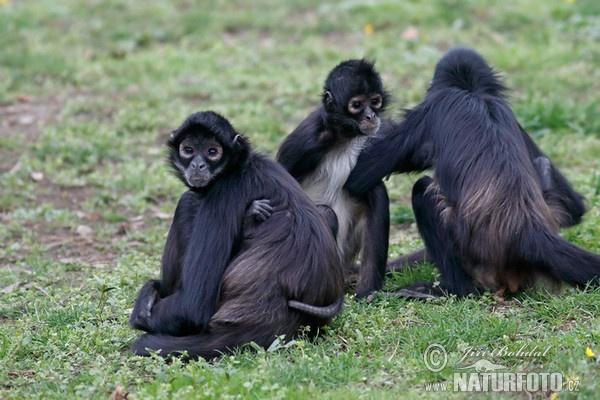Background & Aims
Among mammals, primates are traditionally considered to have a reduced sense of smell and to rely more on other senses such as vision. However, primates have been shown to use olfactory cues in a number of behaviors including food identification and selection, territorial defense, communication of social status and recognition of conspecifics. Thus, it should be assumed that olfaction in fact has behavioral relevance for primates. At the moment very little is known about olfactory learning in primates and in order to gain more knowledge about this aspect of cognition, I trained five adult spider monkeys in an odor discrimination paradigm.I collected data on the spider monkeys' learning speed in initial shaping and in intramodal transfer tasks, and about their long-term odor memory.
The four main aims of the present study were
1) to train five adult spider monkeys in a food-rewarded two-choice olfactory discrimination paradigm and to assess their initial olfactory learning performance, 2) to assess their learning performance in a series of intramodal transfer tasks, 3) to assess their olfactory memory performance and 4) to compare their olfactory learning and memory performance to that of other species.

Responsible for this page:
Director of undergraduate studies Biology
Last updated:
05/06/19
